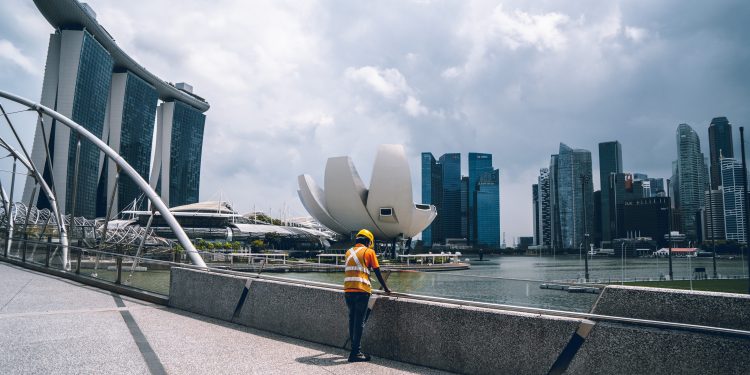Fill Me In
The issue on minimum wage was brought up again in the recent parliamentary sitting where the opposition, Worker’s Party (WP), pushed for a proposed monthyly amount of $1,300 as a universal minimum wage.
Not the first time issue is raised
This was the second time this year that WP has raised this up, leading to questions from the ruling party, the People’s Action Party (PAP). In parliament, Member of Parliament (MP) Assoc Prof Jamus Lim of WP said that his party’s proposal is based on studies which have shown that an introduction of minimum wage does not lead to an increase in unemployment. This, he argued is based on an amalgamation of studies instead of “folksy wisdom and beliefs of labour union leaders.” Union leaders, in return, responded by criticising the minimum wage, calling it an unfeasible idea and urged not to “belittle them”.
Minimum wage has always been a hotly debated topic
The introduction of a minimum wage has been a hotly debated topic and discussed in parliament even in the 2000s. Minimum wage refers to the lowest salary that employers can legally compensate their workers. According to the International Labour Organisation (ILO), 92% of member states had minimum wage with Singapore being part of the remaining 8%. By setting the minimum wage amount to $1,300, this, according to MPs, only affects 1.7% of the population. A poverty line of $1,500 would mean that 12-14% or 130,000-150,000 of Singapore resident households are living in poverty, as of 2008.
The debate around minimum wage centers around two camps: the proponents of minimum wage would argue that this lifts the poor out of poverty while opponents, as reiterated by several MPs, would dilute Singapore’s competitiveness and increase unemployment. This debate is based on a collation of studies that have led to mixed results and is not unique to just Singapore. Are the claims of both parties valid? Can Singapore truly move towards a universal minimum wage in the future?
Minimum wage, unemployment and poverty
One of the many factors mentioned by the MPs as to why the minimum wage should not be implemented is the correlation with high unemployment. This is because, business competitiveness in Singapore is diluted or compromised, where employers now have to raise wages of those earning below the poverty line. Being a free and open economy like Singapore where attracting businesses to Singapore is through cheap labour, businesses are disinclined to invest as much as they would otherwise. As such, MP Gan Siow Huang said in the parliamentary debate, “low wages are better than no wages”.
However so, are there merits to this argument? Are the 92% of the countries with minimum wage actually experiencing increase unemployment from minimum wage? If we look at the case in Hong Kong, the introduction of minimum wage has lifted 140,000 families out of poverty and since the introduction in 2011, underemployment rate remains unchanged at 1%. This negative correlation is also found in countries such as Taiwan and Japan.
Similarly, our neighbour, Malaysia has implemented a minimum wage back in 2013 which applies to all workers except domestic workers. In February 2020, the poverty line increased from RM 1,100 to RM 1,200 and hourly rates have increased from RM 5.29 to RM 5.77. This, was in conjunction with the rising cost of living in Malaysia but businesses have argued that with the pandemic that led to slow growth in the economy, rising wages will encourage layoffs. However, when an official minimum wage was introduced, again there is no correlation between unemployment rate and poverty line. In fact, Malaysia’s unemployment rate dropped by 2.9% just a year after the introduction of a minimum wage.
Alternative to minimum wage
Singapore, while still adamant to introduce a minimum wage, has instead, adopted a Progressive Wage Model (PWM) that helps to increase wages of workers through skills upgrading. Thus far, PWM has been implemented in three sectors namely, cleaning, security, and landscape. Unlike minimum wage where employees are paid regardless of skill upgrading, an employee’s wage increases upon successful completion of courses. Workers in these sectors have seen an increase of 30% in cumulative wage in the last 5 years. While this model is a step towards helping the poor, opposition parties have urged the PAP to implement this to other sectors.
Steps forward
It is worthy to take a step back and evaluate the opposition party’s proposal since there are huge merits to this. To adequately move the poor out of poverty, an in-depth analysis of the accurate poverty line and a thorough stakeholder analysis need to be addressed. The opposition party has said that they are unsure of the right poverty line to be implemented in Singapore and as such, proposed that a taskforce is needed. Only by analysing the feasibility of a minimum wage can we properly debate and rule out the introduction of minimum wage, if necessary. Until then, the debate will be endless where both parties continue to cite countries that have successfully or unsuccessfully introduced a minimum wage.














